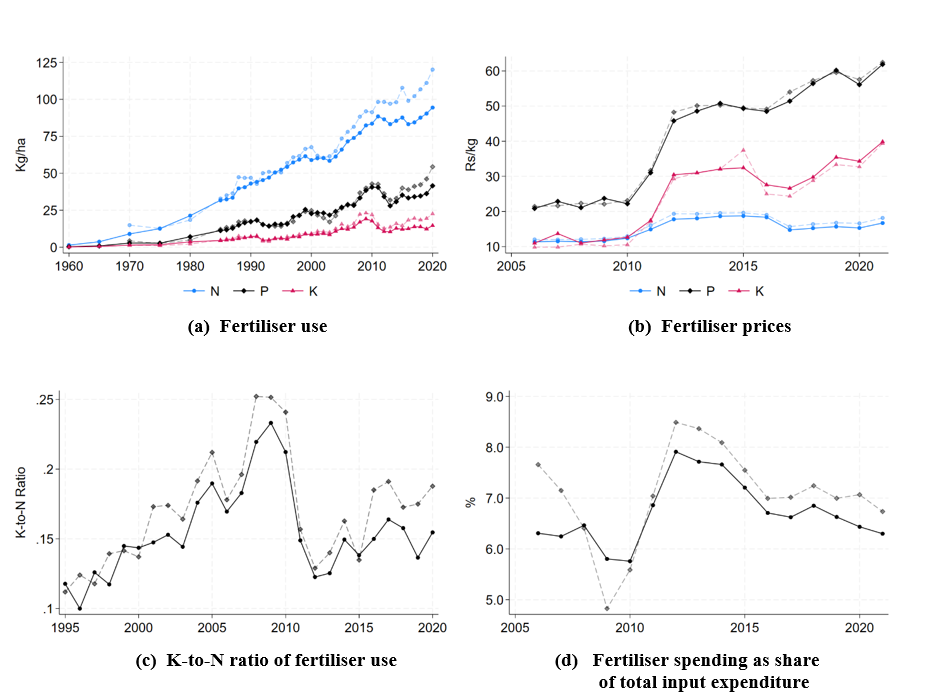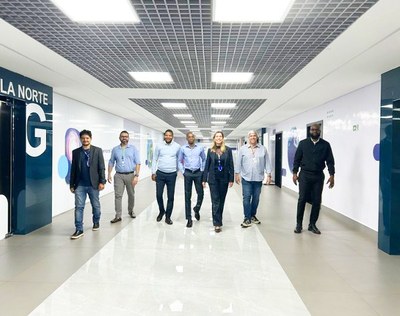OCTC re-opens Industrial Innovation Lab – Eyewitness News (WEHT/WTVW)

Report on the Re-opening of the OCTC Industrial Innovation Lab and its Alignment with Sustainable Development Goals
Executive Summary
The Owensboro Community and Technical College (OCTC) has announced the re-opening of its Industrial Innovation Lab, an initiative poised to significantly contribute to regional sustainable development. An open house is scheduled for July 29 at the OCTC Downtown Campus to showcase the facility’s enhanced capabilities. This report outlines the lab’s objectives and its direct contributions to the United Nations Sustainable Development Goals (SDGs).
Event Details
- Event: Open House for the Industrial Innovation Lab
- Institution: Owensboro Community and Technical College (OCTC)
- Date: July 29
- Time: 4:00 p.m. to 6:00 p.m.
- Location: OCTC Downtown Campus, 1501 Frederica Street
Laboratory Objectives and Technological Focus
The primary mission of the Industrial Innovation Lab is to advance technical education and support local industry, thereby fostering economic resilience and innovation. Its core functions include:
- Providing customized, demand-driven training for industry partners.
- Supporting the Industrial Technology Enhanced Credentials (ITEC) program.
- Featuring advanced technology platforms to ensure a future-ready workforce.
The lab specializes in critical areas of modern industrial technology:
- Robotics
- Hydraulics and Fluid Power
- Electrical Systems
- Programmable Logic Controllers (PLCs)
Alignment with Sustainable Development Goals (SDGs)
The revitalization of the OCTC Industrial Innovation Lab directly supports the achievement of several key SDGs:
-
SDG 4: Quality Education
The lab provides inclusive and equitable quality education by offering specialized vocational training and lifelong learning opportunities. Through the ITEC program and customized courses, it equips students with technical skills essential for high-demand industrial sectors, ensuring educational pathways lead to viable employment.
-
SDG 8: Decent Work and Economic Growth
By training a skilled workforce in advanced technologies, the facility promotes sustained, inclusive, and sustainable economic growth. It addresses local labor market needs, enabling the creation of decent work and enhancing the productivity and competitiveness of regional industries.
-
SDG 9: Industry, Innovation, and Infrastructure
The lab serves as a vital piece of local infrastructure that fosters innovation and promotes inclusive and sustainable industrialization. By providing access to modern robotics, automation, and electrical systems, it empowers local businesses to upgrade their technological capabilities and adopt more efficient and sustainable practices.
-
SDG 17: Partnerships for the Goals
The model of delivering customized training for industry partners exemplifies a strong partnership between academia and the private sector. This collaboration is crucial for achieving sustainable development, as it aligns educational outcomes with industrial needs, ensuring a synergistic approach to economic and social progress.
1. Which SDGs are addressed or connected to the issues highlighted in the article?
The article on the Owensboro Community and Technical College (OCTC) Industrial Innovation Lab connects to several Sustainable Development Goals (SDGs) centered around education, economic growth, and industrial innovation.
- SDG 4: Quality Education – The core purpose of the lab is to provide education and training.
- SDG 8: Decent Work and Economic Growth – The training is designed to equip individuals with skills for employment in the industrial sector, contributing to economic productivity.
- SDG 9: Industry, Innovation, and Infrastructure – The lab is explicitly named the “Industrial Innovation Lab” and focuses on advanced technology and industry partnerships.
2. What specific targets under those SDGs can be identified based on the article’s content?
Based on the lab’s described functions, several specific SDG targets can be identified:
SDG 4: Quality Education
- Target 4.4: By 2030, substantially increase the number of youth and adults who have relevant skills, including technical and vocational skills, for employment, decent jobs and entrepreneurship.
Explanation: The article states the lab “delivers customized training for industry partners” and supports the “Industrial Technology Enhanced Credentials (ITEC) program.” This directly aligns with providing technical and vocational skills to adults for employment.
SDG 8: Decent Work and Economic Growth
- Target 8.2: Achieve higher levels of economic productivity through diversification, technological upgrading and innovation, including through a focus on high-value added and labour-intensive sectors.
Explanation: The lab’s focus on “advanced technology in robotics, hydraulics, fluid power, electrical systems and programmable logic controllers” is a direct effort to support technological upgrading and innovation within the local industry, thereby boosting economic productivity.
SDG 9: Industry, Innovation, and Infrastructure
- Target 9.2: Promote inclusive and sustainable industrialization and, by 2030, significantly raise industry’s share of employment and gross domestic product, in line with national circumstances, and double its share in least developed countries.
Explanation: By providing training and technology support for “industry partners,” the OCTC lab helps strengthen the local industrial sector, which is a key component of promoting industrialization. - Target 9.5: Enhance scientific research, upgrade the technological capabilities of industrial sectors in all countries… encouraging innovation…
Explanation: The “Industrial Innovation Lab” is a clear example of infrastructure designed to upgrade the technological capabilities of local industries. Its function of delivering training on “advanced technology” directly contributes to this target.
3. Are there any indicators mentioned or implied in the article that can be used to measure progress towards the identified targets?
The article does not provide explicit quantitative data, but it implies several indicators that could be used to measure progress:
Indicators for SDG 4 (Target 4.4)
- Implied Indicator: The number of students who enroll in and complete the “Industrial Technology Enhanced Credentials (ITEC) program.” This would measure the increase in adults with relevant technical skills.
- Implied Indicator: The number of individuals who participate in the “customized training for industry partners.” This directly relates to the proportion of adults receiving vocational training.
Indicators for SDG 8 (Target 8.2)
- Implied Indicator: The number of industry partners collaborating with the lab. This would indicate the level of engagement in technological upgrading.
Indicators for SDG 9 (Targets 9.2 & 9.5)
- Implied Indicator: The number and type of “advanced technology” systems (robotics, hydraulics, etc.) integrated into the lab’s curriculum and used for training. This serves as a proxy for investment in technological capability.
- Implied Indicator: The creation of the “Industrial Innovation Lab” itself is an indicator of investment in infrastructure to support industrial innovation and research.
4. Table of SDGs, Targets, and Indicators
| SDGs | Targets | Indicators (Implied from Article) |
|---|---|---|
| SDG 4: Quality Education | Target 4.4: Increase the number of youth and adults with relevant technical and vocational skills for employment. |
|
| SDG 8: Decent Work and Economic Growth | Target 8.2: Achieve higher levels of economic productivity through technological upgrading and innovation. |
|
| SDG 9: Industry, Innovation, and Infrastructure | Target 9.5: Enhance research and upgrade technological capabilities of industrial sectors. |
|
Source: yahoo.com

What is Your Reaction?
 Like
0
Like
0
 Dislike
0
Dislike
0
 Love
0
Love
0
 Funny
0
Funny
0
 Angry
0
Angry
0
 Sad
0
Sad
0
 Wow
0
Wow
0





/https://media.globalcitizen.org/ea/9e/ea9e1a08-9cc4-472e-a0a7-57a76f7c1e06/screenshot_2025-11-06_at_101647.png?#)












![Architects use comics and humour to rethink sustainable cities [Interview] – Mongabay-India](https://imgs.mongabay.com/wp-content/uploads/sites/30/2025/11/06135611/1761635108000-768x511.jpeg?#)



















































;Resize=620#)









